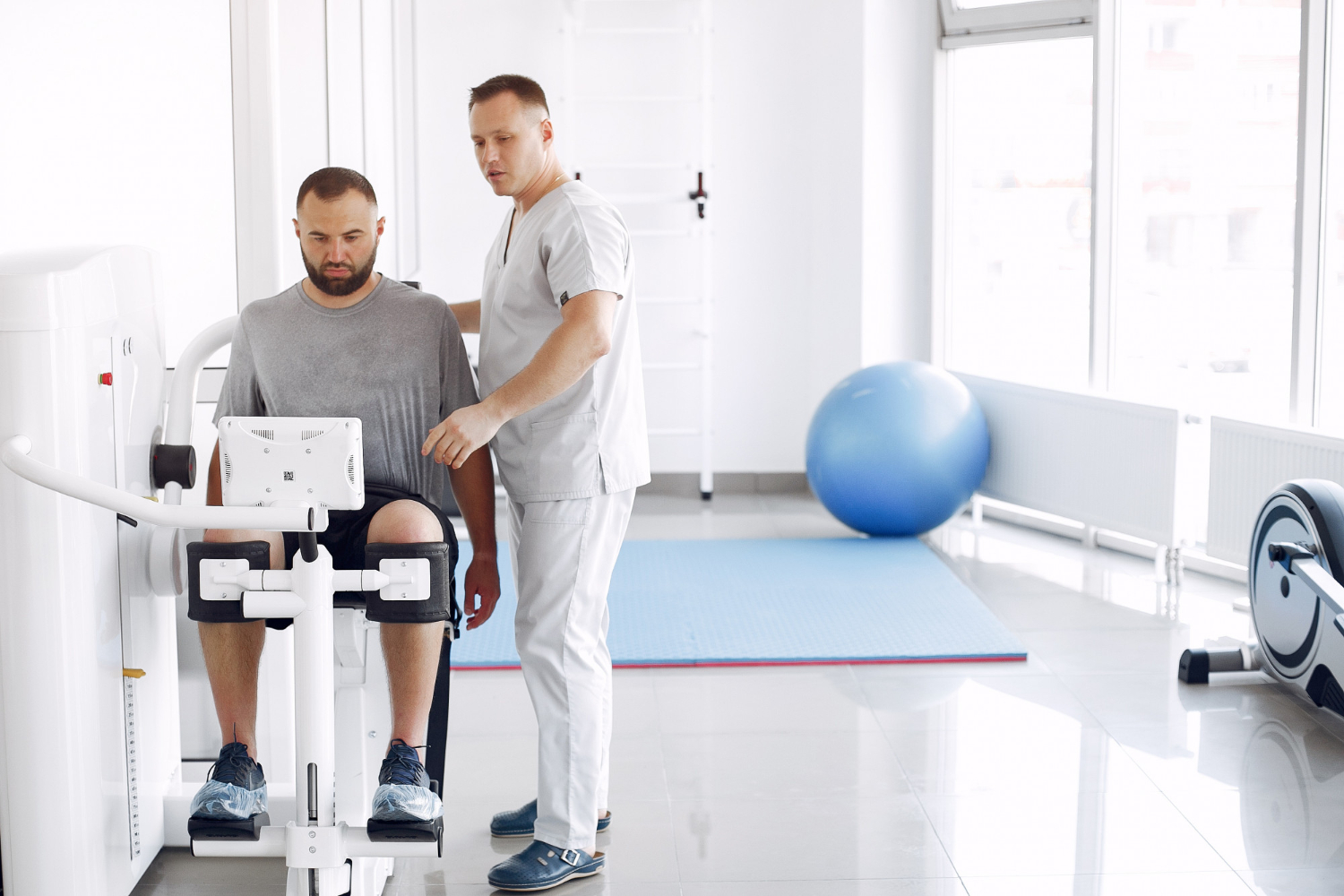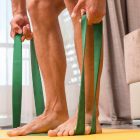Synopsis
Spinal health forms the foundation of a pain-free, active life. Whether you’re recovering from injury, managing spinal stenosis, or looking for rehabilitation after a sports-related strain, targeted physiotherapy can redefine your healing journey. This blog explores the critical role of spine physiotherapy and sports spinal physio in enhancing core strength, mobility, and posture. It provides detailed insight into techniques such as manual therapy, MedX spinal rehabilitation, and postural correction routines used by expert therapists. Discover how physiotherapy for spinal stenosis alleviates pressure on nerves and restores movement, and how spine specialist physical therapy builds a preventive strategy for long-term wellness. With increasing back issues among working professionals and athletes alike, the need for specialised spinal physio and spine specialist physiotherapist intervention has never been greater. From pain relief to strength enhancement, this blog serves as a practical guide to understanding and experiencing the benefits of structured spine care. Let’s delve into the core of recovery—your spine.
Table of Contents
- Why Spine Health is Crucial
- Causes and Symptoms of Spinal Dysfunction
- What is Spine Physiotherapy?
- Exploring Sports and Spinal Physio
- Addressing Spinal Stenosis through Physiotherapy
- Role of Spine Specialist Physical Therapy
- Orthocure’s Scientific Approach to Spinal Physio
- Why Choose Orthocure for Spine Physiotherapy
Why Spine Health is Crucial
The spine is central to your body’s structure and function. It supports posture, facilitates movement, and houses the spinal cord—your nervous system’s main highway. Poor spine health can lead to pain, nerve compression, mobility issues, and systemic complications. That’s why spine physiotherapy is essential—not just to treat issues, but to prevent them. From sedentary office lifestyles to sports injuries, spinal dysfunction is on the rise.
Causes and Symptoms of Spinal Dysfunction
Common causes of spinal issues include poor posture, herniated discs, spinal stenosis, trauma, and age-related degeneration. Symptoms range from back pain and muscle tightness to radiating leg pain and numbness. These issues are often managed with spinal physio and, in severe cases, spine specialist physical therapy. Early diagnosis and physiotherapy interventions can significantly reduce recovery time and prevent surgical intervention.
What is Spine Physiotherapy?
Spine physiotherapy involves targeted exercises, postural corrections, mechanical traction, and manual therapy designed to relieve spinal stress and restore function. It focuses on realigning vertebral segments, strengthening deep core muscles, and improving spinal flexibility. Techniques vary based on condition severity but are always aimed at improving quality of life without medications or surgery. A certified spine specialist physiotherapist customises each session for optimal results.
Exploring Sports and Spinal Physio
Athletes often require sports spinal physio due to repetitive strain, high-impact injuries, or overtraining. This approach includes dynamic neuromuscular stabilisation, proprioception training, and agility drills combined with spinal mobilisation. Whether you’re a professional or a fitness enthusiast, sports and spinal physio ensures performance without compromising spinal integrity. It’s equally effective for post-injury recovery and injury prevention.
Addressing Spinal Stenosis through Physiotherapy
Physiotherapy for spinal stenosis focuses on relieving pressure on compressed nerves by improving spinal alignment and core strength. Specific stretches, decompression techniques, and pelvic tilts are employed to widen the spinal canal. These methods, when combined with spinal physio, provide significant relief from symptoms like leg numbness, lower back pain, and walking difficulty. Patient education is a key component to avoid recurrence.
Role of Spine Specialist Physical Therapy
Spine specialist physical therapy differs from general physio as it involves deeper diagnostics, functional movement screening, and the use of advanced machines like MedX. It is often recommended for complex cases like disc herniations, post-surgical rehab, or long-standing pain. A spine specialist physiotherapist monitors progress through precise protocols and adapts plans to the patient’s physical response and healing speed.
Orthocure’s Scientific Approach to Spinal Physio
Orthocure Clinics and Gyms follow a “4-Point Protocol” approach to spine physiotherapy. Our scientific diagnosis includes posture analysis, digital strength tests, and functional screening. Therapists combine global techniques from Canada and Germany with advanced equipment such as spinal decompression machines and MedX lumbar/cervical machines. These tools provide targeted, data-driven treatment plans tailored to individual spine conditions.
Why Choose Orthocure for Spine Physiotherapy
Orthocure’s strength lies in blending global medical expertise with empathetic care. Our spine specialist physiotherapists are certified in advanced modalities, enabling faster and safer recovery. Whether it’s physiotherapy for spinal stenosis, rehabilitation after an injury, or preventive spinal physio for office-goers, Orthocure offers personalised, surgery-free treatment. We also integrate fitness and spinal wellness through our gyms for the 40+ age group, empowering long-term spinal strength and mobility.
FAQs
What are the signs that I need spine physiotherapy?
Signs include persistent back pain, stiffness, numbness in legs, reduced mobility, and radiating discomfort down the spine. If your lifestyle or work routine involves long hours of sitting or intense physical activity, spine physio can prevent chronic damage. A spine assessment by a certified physiotherapist is ideal for diagnosis and timely treatment.
How does sports spinal physio differ from general back exercises?
Sports spinal physio is tailored to athletic movements and injury risks. It includes strength training, neuromuscular coordination, and movement pattern correction. Unlike general exercises, it is supervised and adapted to prevent further strain. It’s especially effective for athletes or active individuals facing repetitive spinal stress.
Can physiotherapy treat spinal stenosis effectively?
Yes, physiotherapy for spinal stenosis can reduce symptoms significantly by decompressing nerve roots and improving core support. Therapists employ posture training, mobilisation, and specific exercises to expand the spinal canal space. The result is reduced pain, increased mobility, and better walking endurance.
What tools or machines are used in spine specialist physiotherapy?
Clinics like Orthocure use MedX lumbar and cervical extension machines, spinal decompression systems, and digital diagnostics for strength and flexibility assessments. These tools provide accurate, pain-free rehab options that target deep spinal musculature and prevent recurrence.
Is spinal physio suitable for post-surgery recovery?
Absolutely. Spine physiotherapy aids in regaining strength, flexibility, and posture after spinal surgeries. A tailored plan helps avoid complications, strengthens supporting muscles, and promotes full recovery. Regular sessions under professional supervision are essential for safe rehabilitation.





